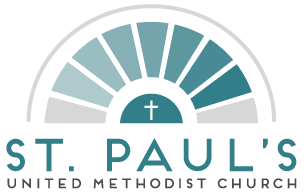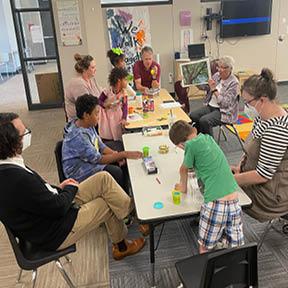|
Saturday, January 21 2023
This blog is written at a crucial moment in our state, as debate will begin Monday afternoon to address the “Students First Act” which would create education savings accounts, or what many of us know as vouchers, to go towards funding costs of students at private schools. Not only would this fundamentally alter education as we know it in Iowa, this is a matter of great importance for United Methodists, and of particular importance for St. Paul’s. Our United Methodist Social Principles, found in our Book of Discipline states, “We believe that every person has the right to education. We also believe that the responsibility for education of the young rests with the family, faith communities, and the government. In society, this function can best be fulfilled through public policies that ensure access for all persons to free public elementary and secondary schools and to post-secondary schools of their choice” (Paragraph 164.E). Furthermore, “Our heritage should lead us to defend the public schools and to rejoice that they nearly reflect our country’s racial, ethnic, and religious diversity now more than ever before” (The Book of Resolutions, p. 218). The bills to be debated Monday on the Iowa House and Senate floors do not reflect a commitment to using public funds for public education. This ought to be a concern for all Iowans, for United Methodists in Iowa, and especially for a church that has declared its love for children and youth and a commitment to pursue justice. Yet, if you are still unsure of United Methodists taking part in this discussion, our Book of Resolutions states clearly for us, “We specifically oppose tuition tax credits, school vouchers, or any other mechanism that directly or indirectly allows government funds to support religious schools at the primary and secondary level” (p. 479). Not only do we hold this belief, but we are called to act on it. Under a “call to action,” our Resolutions calls us to “advocate at the state and local level for adequate public school funding and equitable distribution of state funds” (p. 222). The bills to be debated Monday divert public money away from public schools, which serve over 90% of Iowa’s students to disproportionately benefit fewer than 10% of them. Furthermore, this legislation will pull dollars away from rural public schools, and students there have no option of private schooling within driving distance. This bill would not require the same level of accountability and oversight for private schools as public schools undergo. And, the majority of Iowans do not support this legislation. We have a voice, and right now is the time to use it! A Call to Action Please email both Iowa legislators in the House and Senate (list below). Here is a template you can use. It is a best practice that we write one message, but send it individually to each member with an appropriate salutation (rather than sending one mass email to them all). Dear (Representative or Senator) ________, I am a resident of Cedar Rapids, and I am writing to ask you to vote “no” on the Students First Act, which would divert taxpayer money from serving the majority of Iowa’s students to disproportionately benefit a small amount of children and youth. As a (parent, grandparent, teacher, pastor, United Methodist, etc.), I am concerned by this because…(give a brief personal reason here). And, if you oppose this for no other reason, please vote “no” since the nonpartisan Legislative Services Agency has yet had the time to clarify the true cost of this bill. As a leader elected to serve the people of Iowa and our best interest, I again ask you to vote “no” on the Students First Act. Thank you, Senators who are believed to be on the fence
Representatives who are believed to be on the fence
Second, we can call the Iowa Capitol switchboard and leave a message for our legislators:
The time is short, but our calling to pursue the common good beckons us to respond and to do so swiftly. As you write and/or call, be sure to keep it short, simple, and sweet. Since this is moving so quickly, we have canceled the Tuesday evening letter-writing event. Please send emails instead, and pray. And, one last request: after all that, please send one more email: let Becca (rnims@stpaulsumc.org) and Pastor Jonathan (jheifner@stpaulsumc.org) know you participated. We want to know how widely our shared voice is being heard in the state. In Christ’s Love and Power, Helpful information was provided by Interfaith Alliance of Iowa Sunday, January 08 2023
During the summer of 2022 a team of listeners had 116 conversations with members of our congregation to hear your dreams and visions for the future of St. Paul’s. We heard many of you say you desire to “grow through vibrant ministry with children, youth, and families.” It would be wonderful if I ,the Family Ministry Director, had a magic wand to wave over our community and congregation and make this dream a reality in an instant. In reality, this will take hard work, and it will be hard work for all of us to take on. One way we can work together on this goal is through intergenerational ministry opportunities. Before we can dig into what this could look like we need to mention that “multi generational” and “intergenerational” are similar terms, yet have a different impact/vision. Multigenerational: Multigenerational ministry is accidental. Generations coexist within a congregation because of shared geography or family structures, not because of a shared mission or meaningful relationships. Accordingly, multigenerational churches often result in siloed generational segments with only limited interaction (Billy Kluttz, “Multigenerational Versus Intergenerational Ministry: What's the Difference?”) Intergenerational: Intergenerational ministry develops disciples and energizes churches by bringing together any combination of at least two generations in planned and purposeful settings; empowering multiple generations to mutually invest in each other and in their faith community; intentionally encouraging … relationships among multiple generations (Billy Kluttz, “Intergenerational Ministry: Why and How?”). Intergenerational ministry is intentional and is at the core of our baptismal vows for us as United Methodists. When a person is baptized a pastor will ask the following question to the congregation: “Will you nurture one another in the Christian faith and life and include these persons now before you in your care?” The congregation responds: “With God's help we will proclaim the good newsand live according to the example of Christ. We will surround these persons with a community of love and forgiveness,that they may grow in their trust of God, and be found faithful in their service to others. We will pray for them, that they may be true disciples who walk in the way that leads to life.” (From “The Services of the Baptismal Covenant of The United Methodist Church” as revised to align with the 2008 Book of Discipline and Book of Resolutions) Intergenerational is who we are as a people of The United Methodist Church, and particularly as St. Paul’s. Being an intergenerational community means that each of us, no matter our age, have something to contribute to another. It also means that we each have something to learn from one another. The chart below uses Erik Erikson’s theory of psychosocial stages to outline these needs in a church setting.
Erikson’s stages derived from https://www.simplypsychology.org/Erik-Erikson.html Intergenerational ministry is also about taking a look at what voices we hear the most. Are we hearing from Gen Z, Millennials, Gen X, Baby Boomers, and the Silent Generation? Are we hearing from marginalized groups? Does every age group have a place to serve according to their gifts and passions? Intergenerational ministry is a choice. It is also a hard choice. It means being intentional. “Intergenerational ministry is difficult to define because it is a philosophy of ministry rather than a program. Its goal is to strategically build significant and purposeful interactions between the generations within the structures of a church. The key components of intergenerational ministry are interaction and intentionality. Intergenerational ministry is more than bringing the generations into proximity with one another. It is intentionally building mutual and influential relationships with a degree of regularity between the various generations” (Ed Springer, An introduction to intergenerational ministry) Over the next few months, it is my hope that we can start to make the intentional choice through opportunities of intentional programs and gatherings. And, more than a hope it is my goal and plan to provide opportunities for us to move in this way. Does this mean that there’s not a place for age specific groups or programming? Of course not. “Establishing intergenerational community does not mean eradicating age-specific ministries. As important as it is to embrace intergenerational values at a core level, it’s also important to keep that in balance with age-specific ministry. We need to realize that exclusively age-specific ministry may be “working” to varying degrees, but has not proven sustainable for ongoing transmission of faith among young adults who have grown up exclusively in youth ministries. At the same time, all ages still need their own space to grow and develop at their own pace. Everyone needs to be part of a web of relationships that includes their peers AND members of other generations.” (Brad M. Griffin, Intergenerational ministry beyond the rhetoric) Intergenerational ministry for St. Paul’s means that we each have a hand in growing vibrant children, youth and family ministry. Becca Nims, St. Paul’s Family Ministry Director Thursday, January 05 2023
“Epiphany” means an appearance or manifestation. The celebration of Epiphany commemorates the visitation of the Magi to the infant Jesus: the manifestation of God incarnate to the Magi, and also to us. There is an old tradition of blessing the threshold of the home with chalk for the new year on Twelfth Night or Epiphany. You can do this with your family. The letters “C M B” included in the markings refer to the names traditionally given to the Wise Men, but they can also stand for “Christus mansionem benedicat,” which in Latin means “Christ, bless this house.” Gather together at the threshold of your home, be it the main door of a house or an apartment door, with a piece of chalk and the words of this blessing. Leader: God became flesh in Jesus Christ, making ordinary, earthly things holy. God uses the ordinary in not-so-ordinary ways. This chalk, made from dust of the earth, reminds us of our own dustiness, and the hope that Christ brings to us earthly beings. Bless this chalk to mark our home with a blessing for the new year, that all who come and go from this place find peace and shelter here and are filled with wholeness and hope. Leader: Peace be to this house All: And all who live here. With your chalk, make these marks (in parentheses) as you say the words: The Maji from the east, known in legend as Caspar (C), Melchior (M), and Balthasar (B), C M B two-thousand (20) and twenty three (23) years ago, followed the star and entered the home where they saw the child Jesus with Mary, his mother, and they knelt down and worshiped him. Then, they offered him gifts of gold, frankincense, and myrrh. 20 C M B 23 May Christ (+) bless (+) our home (+). 20 C+ M+ B+ 23 All: Christ, visit our home with your presence, that all who visit or reside here may be blessed by your love made manifest. Amen. Reflection and liturgy by Stephanie Heifner. |







